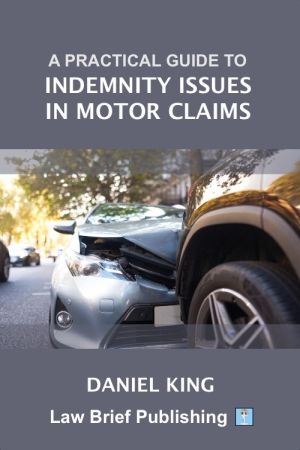
This practical guide to indemnity issues in motor claims is designed to assist all those involved in the bringing or defending of claims arising out of road traffic accidents, including claimant and defendant fee earners, insurance claims handlers, Solicitors, litigants, academics, and other legal professionals. The text draws upon practical examples and cites the seminal case law from every stage of the litigation process, ranging from pre-proceedings up to and including trial, and is intended to provide a comprehensive guide for resolving the full spectrum of indemnity issues in motor claims.
The importance of understanding the principle of indemnity cannot be understated when it comes to assessing the merits of any motor claim – getting it wrong can be costly, time consuming, and in the worst-case scenario, result in an otherwise good claim (or defence) failing altogether. Conversely, understanding when the issues are engaged and how one might apply the case law and tactical knowledge as set out in this book, could well be the difference between winning and losing the case. Claimants should establish that they are suing the correct insurer (or as the case may be, the Motor Insurers’ Bureau) and that they have pleaded the correct cause of action. Whilst those acting for insurers really ought to know if they owe a liability for the claim presented to them at all, situations in which they may avoid a claim, or even transfer liability to another entity altogether. The book should also act as an aid for anybody being pursued for recovery of losses (particularly litigants in person) when their insurer has withdrawn indemnity under the policy and sues them for the damages paid to a third party.
This useful guide to indemnity issues in motor claims is designed to provide claimant and defendant practitioners alike with practical guidance on how to navigate the most technical and complex of issues, updated to cater for the post-Brexit era, in order to secure the correct outcomes for clients in the most efficient and economical ways, either with or without the court’s intervention.